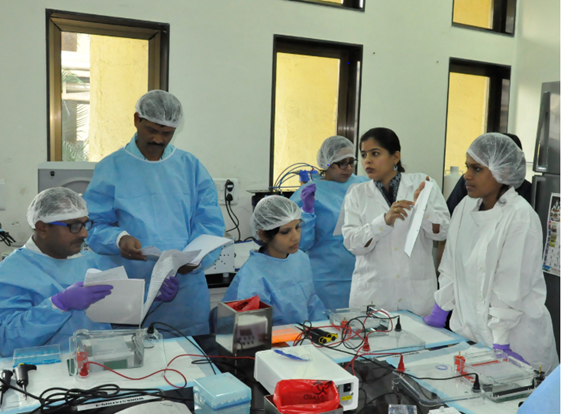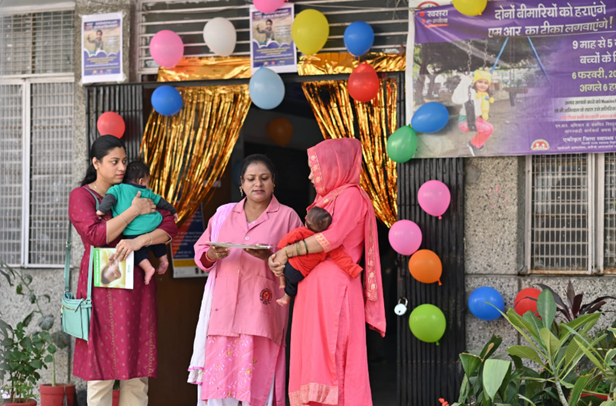NEW DELHI: A robust laboratory network is catalyzing India’s progress towards measles and rubella elimination. In 2022, sensitive measles surveillance helped identify outbreaks across India including the metropolis of Mumbai. These outbreaks were rapidly detected by a WHO-accredited laboratory network, a critical surveillance tool, which spurred timely public health action by the government.
Measles, caused by a virus, is a highly contagious respiratory disease and is especially dangerous for young children. Rubella infection in children and adults is usually mild, but in pregnant women it can cause miscarriages, fetal death or birth defects known as congenital rubella syndrome (CRS). Both measles and rubella are vaccine-preventable diseases.
Measles and rubella (MR) case confirmations are based on serology and molecular diagnosis of fever and rash cases using WHO standardized procedures.

A sample being tested in a laboratory for MR diagnosis (© WHO India)
An expanded MR laboratory network comprising 27 laboratories is playing a pivotal role in enabling early diagnosis of fever and rash cases. Two of these serve as reference laboratories -- the King Institute of Preventive Medicine and Research in Chennai for serology (blood test) and Indian Council of Medical Research-National Institute of Virology (ICMR-NIV) Mumbai Unit for genetic sequencing to identify strains of the virus in circulation. Reference laboratories support others in the network on cross validation of samples, quality assurance and training. The ICMR-NIV unit in Mumbai is also recognized as a WHO Global Specialized Laboratory (GSL) for polio since 2000. Fifteen laboratories in the MR network are ICMR-Viral Research and Diagnostic Laboratories (ICMR-VRDLs) set-up by the Department of Health Research under Government of India’s Ministry of Health and Family Welfare for timely identification of public health threats.
In 2022, the MR laboratory network across India tested 77 665 blood samples and 32 681 molecular specimens.
ICMR-NIV Mumbai Unit received 4371 blood samples for testing between January–September 2022, which increased to 6315 from October–December 2022 following an increase in cases. Similarly, the specimens for molecular testing increased from 2879 between January–September to 4852 from October–December 2022. Given their experience of handling wild poliovirus outbreaks in the past, the laboratory started reporting measles specimen results to health authorities within 24-hours of receipt of sample, thus activating timely outbreak response.

A training session facilitated by WHO Country Office for India.(© WHO India)
WHO’s National Public Health Support Network provides technical support to the Government in surveillance; immunization; outbreak response; and strengthening the laboratories network. WHO has been supporting the MR laboratory network including its expansion from 13 laboratories in 2015 to 27 in 2021. In February 2023, WHO provided nine MR laboratories with sequence editing bioinformatics software and trained their technical staff to use it. To strengthen quality assurance, in November 2022, WHO supported training of MR national assessors on quality management and internal audit system as per ISO 15189:2012 standards.
India has been polio-free for over a decade through building a strong foundation of public health response including immunization, surveillance, a robust laboratory network, timely outbreak response, monitoring progress and community engagement. Lessons from polio are also being applied to MR elimination.
India is targeting a vaccination coverage of 95% with two doses of MR vaccine to achieve MR elimination. The MR vaccine is given free under India’s Universal Immunization Programme. India vaccinated over 344 million children between 2017 and February 2023 through wide-age range MR vaccination campaign.
WHO remains committed to working with the government and partner agencies to eliminate measles and rubella.

A health worker talking to mothers who have brought their children for measles vaccination at a health centre in New Delhi (© WHO India)
